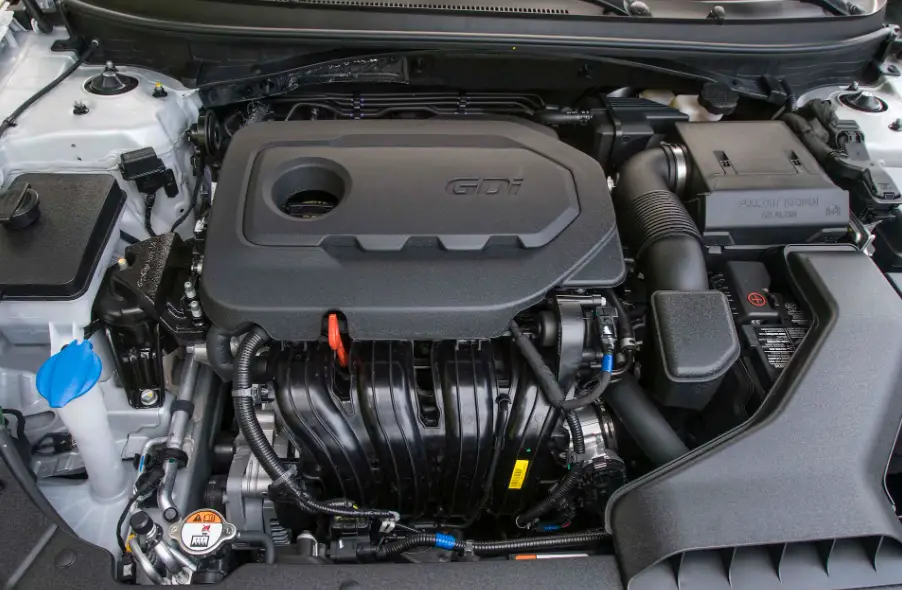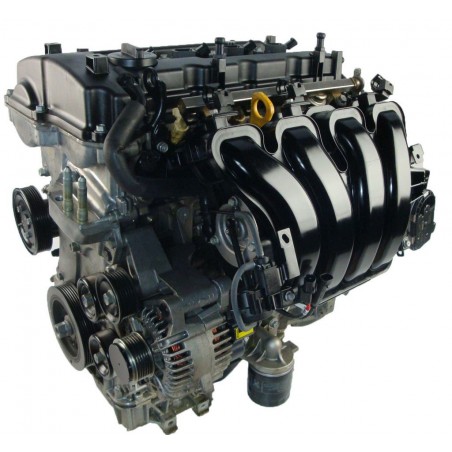Hyundai Sonata engine problems, especially in 2011–2016 models, include issues like engine failure, excessive oil consumption, and stalling. These problems often stem from manufacturing defects, faulty components, or poor maintenance. Hyundai has addressed many concerns through recalls, extended warranties, and free repairs.
The Hyundai Sonata has been a popular midsize sedan for decades, offering affordability, comfort, and advanced features. However, like any vehicle, the Sonata has faced its share of mechanical issues over the years. Among these, engine problems have been a significant concern for many owners, impacting reliability and performance.
This blog we will explain common Hyundai Sonata engine problems, their causes, potential solutions, and preventative measures.

Contents
Common Hyundai Sonata Engine Problems
The Hyundai Sonata is a reliable and popular midsize sedan, but like any vehicle, it can experience engine-related issues. Here are some common engine problems reported in various Sonata models, along with tips for diagnosis and potential fixes.
1. Engine Seizing and Failure
One of the most serious issues reported in Hyundai Sonatas is engine seizure or failure. This is commonly associated with the 2.4L and 2.0L turbo engines, particularly in models from 2011 to 2016. The issue often stems from improper machining during manufacturing, which leaves metal debris in the engine, causing premature wear and oil starvation.
Symptoms:
- Engine knocking sounds.
- Sudden loss of power.
- Engine completely shutting down.
Solution: Hyundai issued recalls and extended warranties for affected models. If you experience these symptoms, contact a Hyundai dealer for inspection and potential engine replacement.
2. Excessive Oil Consumption
Many owners have reported excessive oil consumption in Hyundai Sonatas, especially in older models. This issue is linked to faulty piston rings or seals that fail to maintain proper compression, allowing oil to burn in the combustion chamber.
Symptoms:
- Frequent need to top off oil.
- Blue smoke from the exhaust.
- Reduced engine performance.
Solution: Regularly check oil levels and top off as needed. Repairs may involve replacing piston rings or seals, which can be costly.
3. Stalling Issues
Some Hyundai Sonata models experience stalling while driving, which is not only inconvenient but also dangerous. This is often caused by faulty crankshaft position sensor, a failing alternator, or problems with the fuel system.
Symptoms:
- Engine shutting off unexpectedly.
- Difficulty restarting the vehicle.
- Check engine light illuminated.
Solution: Replace faulty sensors or alternators. A diagnostic scan can help pinpoint the root cause.
4. Timing Chain and Belt Problems
The timing chain or belt plays a crucial role in synchronizing the engine’s components. Premature wear or failure can lead to significant engine damage, including bent valves or a broken camshaft.
Symptoms:
- Rattling noises from the engine.
- Poor acceleration.
- Engine misfires.
Solution: Replace the timing chain or belt at recommended intervals. If you notice symptoms, have the timing system inspected immediately.
5. Turbocharger Failure (For Turbo Models)
Turbocharged Hyundai Sonata models are prone to turbocharger failure due to oil supply issues or excessive heat. This results in reduced performance and potential engine damage if not addressed.
Symptoms:
- Loss of power, especially at higher speeds.
- Whining or high-pitched noises from the engine.
- Oil leaks near the turbocharger.
Solution: Replace or repair the turbocharger. Regular oil changes with high-quality oil can help prevent future issues.

Causes of Engine Problems in the Hyundai Sonata
Identifying the causes of engine problems can help you diagnose and address them early, potentially saving you from costly repairs. Below are common causes of engine problems in the Hyundai Sonata.
- Manufacturing Defects: Several engine problems stem from manufacturing issues, such as improper machining or defective components.
- Poor Maintenance: Neglecting oil changes, using low-quality oil, or skipping recommended service intervals can accelerate wear and tear.
- Design Flaws: Certain engine components, like the piston rings or turbochargers, have been criticized for inadequate durability.
- High Mileage: As with any vehicle, wear and tear from high mileage can lead to engine problems over time.
How to Prevent Hyundai Sonata Engine Problems
Proper care and maintenance can significantly reduce the likelihood of engine problems in your Hyundai Sonata. Here’s a detailed list of preventative measures to keep your engine running smoothly and avoid costly repairs:
- Regular Maintenance: Follow Hyundai’s recommended service schedule, including oil changes, filter replacements, and inspections.
- Use Quality Oil and Fuel: Use the correct grade of oil and high-quality fuel to ensure smooth engine operation and reduce deposits.
- Address Warning Signs Early: If you notice unusual sounds, smells, or performance issues, have your vehicle inspected promptly.
- Stay Updated on Recalls: Hyundai has issued several recalls for engine-related issues. Check your VIN to see if your vehicle is affected.
Hyundai’s Response to Engine Problems
Hyundai has taken steps to address engine problems, including issuing recalls, extending warranties, and offering free repairs or replacements for affected vehicles. For example, a significant recall in 2015 addressed engine failure risks in 2011–2014 models due to manufacturing defects. The company also introduced a lifetime engine warranty for some models under specific conditions. Read more about Hyundai’s response to engine problems.
Related Article
Hyundai GDI Engine Problems
Hyundai 2.5 Engine Problems
Hyundai Engine Problems
Frequently Asked Questions
Here are some FAQs about Hyundai Sonata engine problems –
1. What are the signs of engine problems in a Hyundai Sonata?
Common signs include knocking sounds, excessive oil consumption, blue exhaust smoke, stalling, loss of power, or illuminated warning lights.
2. Are Hyundai Sonata engines reliable?
While many Sonata models are reliable, specific model years (e.g., 2011–2016) have faced engine issues. Regular maintenance improves reliability.
3. How much does it cost to replace a Hyundai Sonata engine?
Replacing a Sonata engine can cost $3,000–$6,000 depending on the model and labor rates. Warranty coverage may reduce or eliminate this cost.
4. Can I prevent engine problems in my Sonata?
Yes, by following the manufacturer’s maintenance schedule, using high-quality oil, and addressing issues promptly, you can reduce the risk of engine problems.
5. Is my Hyundai Sonata affected by engine recalls?
Check your VIN on Hyundai’s recall website or contact a dealer to determine if your vehicle is part of a recall.
Conclusion
Engine problems in Hyundai Sonatas can range from minor inconveniences to severe issues requiring significant repairs. By staying informed about common issues, understanding their causes, and maintaining your vehicle diligently, you can minimize the risk of engine troubles. If you own a Sonata and suspect engine problems, address them promptly to ensure safety and avoid costly repairs.